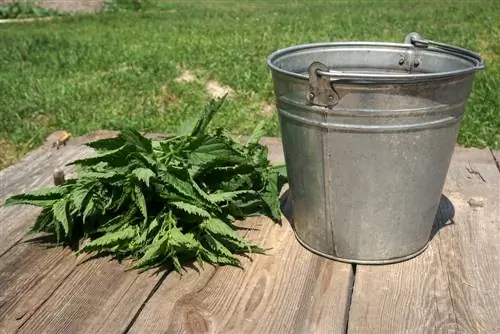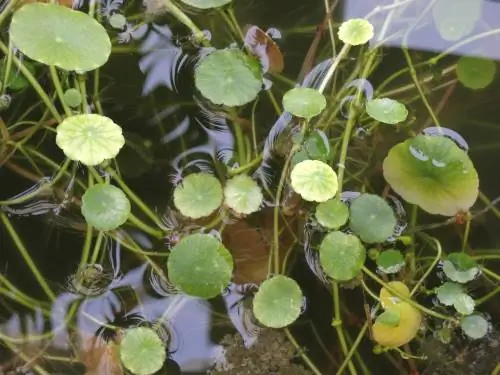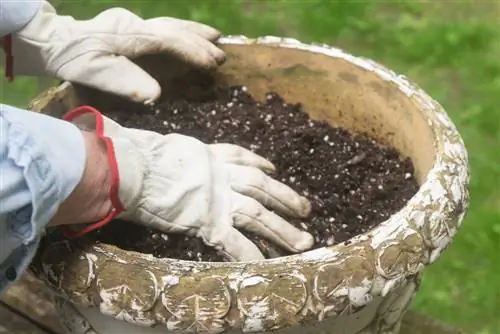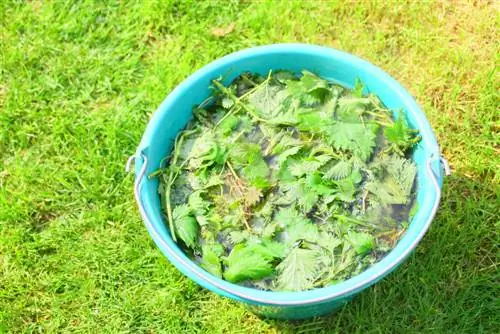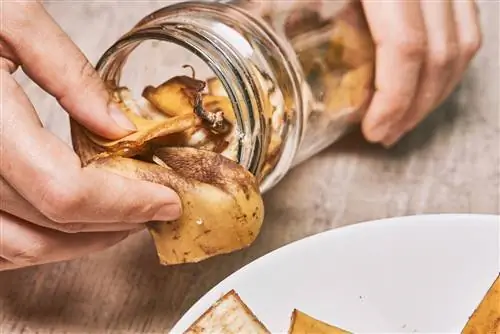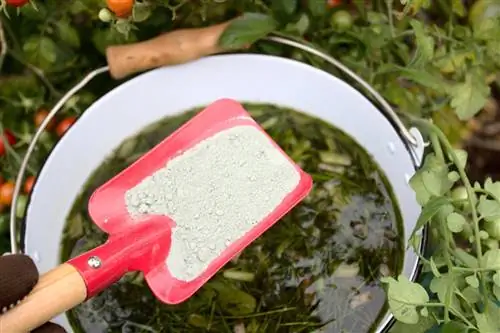- Author admin [email protected].
- Public 2023-12-16 16:46.
- Last modified 2025-01-23 11:22.
Citrus plants need lots of nutrients and trace elements. You can get this from a purchased fertilizer that is tailored specifically to you. But that's not the only option. Anyone who wants to can look for an alternative fertilizer from their own household or garden.
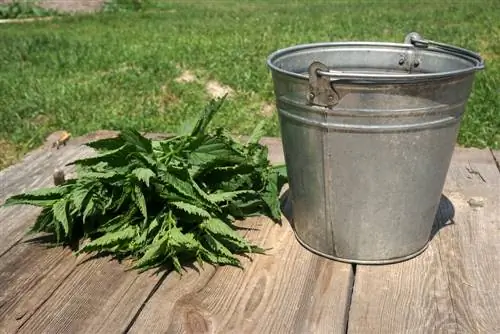
How can I make fertilizer for citrus plants myself?
To make your own fertilizer for citrus plants, you can use compost, plant manure (e.g. B. from nettles or comfrey), cooled cooking water from potatoes and vegetables, leftover tea or coffee, dried citrus leaves and peels or water from ponds and aquariums.
Specifically recreate citrus fertilizer
It is well known which ingredients the citrus fertilizer contains. If you get the following items individually, you can easily mix it together yourself:
- Nitrogen and potassium in approximately the same ratio
- lower amount of phosphate
- plus trace elements boron, iron, copper, magnesium, manganese and zinc
However, this effort will only be worth it if you have a lot of citrus plants.
Compost as citrus fertilizer
Mature compost is often made in your own garden and is suitable for almost all plants. Citrus plants can be supplied with it when repotting, otherwise it is difficult to incorporate it into the potting soil without injuring the roots. However, you can make a liquid brew from mature compost that you can then use to water your citrus plants.
Citrus fertilizer from the plant kingdom
Nature itself is a generous supplier of nutrients. Manure can be made from nettles or comfrey. They are rich in iron, potassium, calcium, phosphorus and nitrogen.
- Finely chop plant leaves
- stuff tightly into a mason jar
- fill with water
- Place the jar in a warm, sunny place for 12 to 48 hours
- Pour out the water and collect it
- Fertilize citrus plants once a month
Citrus fertilizer from the kitchen
Many nutrients are dissolved in the cooking water of potatoes and vegetables. If no s alt has been added, when cooled it is a good fertilizer for all types of citrus.
Two other fertilizers are used almost every day in most households: tea and coffee. You can simply pour leftovers that do not contain milk or sugar onto the soil when they have cooled down. If you use coffee grounds, you should dry them well beforehand and then work them into the top layer of soil.
Recycle your own leaves and peels
Collect leaves and peels from citrus fruits, then dry and grind them. The fine powder is sprinkled onto the soil in spring and worked in superficially.
Tip
If you have a pond in the garden or an aquarium in the house, you can use the water from it for watering. Since it is rich in nutrients, the citrus plants are fertilized at the same time.

